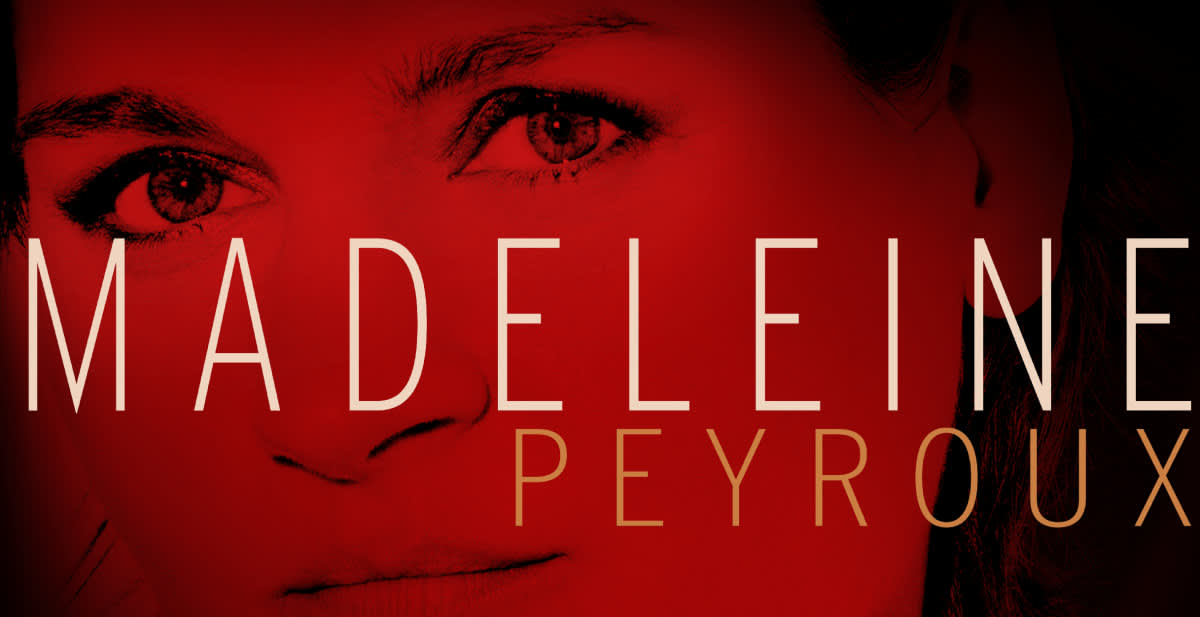
Madeleine Peyroux
Reduced pricing Thursday, Friday and Sunday. Thursday - Saturday at 8pm, Sunday at 6pm. No opener. PHARAOHS RECEIVE BEST SEATING - CALL BOX OFFICE TO BOOK PHARAOH SEATING, NO PROMO CODE!
Event Showtimes:
Thursday pricing: $29 House & Balcony; $35 Preferred; $43 Cabaret Table Seating
Friday and Sunday pricing: $35 House & Balcony; $43 Preferred; $53 Cabaret Table Seating
Saturday pricing: $39 House & Balcony; $49 Preferred; $59 Cabaret Table Seating
Tickets increase $5 half hour before show time.
All sale final. Exchanges may be made for the same show, different date only. Subject to availability and price difference. At least 24 hours notice must be given to the box office prior to original ticket date.
Artist page:https://madeleinepeyroux.com/
Wiki page: https://en.wikipedia.org/wiki/Madeleine_Peyroux
From initial planning to final mix, Careless Love took three months to complete. It was released on September 14, 2004. Commercially, despite Peyroux being labeled by Billboard as a jazz artist, it was a breakout bestseller matching the level of a triumphant pop music release, selling 500,000 copies within a year, and eventually earning platinum status. Overseas sales proved equally impressive; Careless Love garnered gold and platinum records throughout Europe, South America and even China. In America, its performance was certainly spurred by co-operative efforts typical of that day. Snippets of Careless Love melodies popped up on popular television shows like Nip/Tuck, Crossing Jordan, Boston Legal, and on the soundtrack to the film Failure to Launch. “Don’t Wait Too Long” helped sell Dockers trousers in a TV ad, and Starbucks helped promote the album, strategically placing the CD by registers in their cafes coast-to-coast: musical biscotti for all those venti lattes.
Careless Love received resounding support from the critical community as well, albeit with the usual second thoughts. While praising, some reviews raised the eternal question (Is it jazz or is it not?) and many made the inevitable Billie Holiday comparison, which Peyroux did not retreat from. “I felt not only akin to but encouraged by the music Billie Holiday made as a person…I think it is the fact that she overcomes tragedy—very subtly,” she told the Los Angeles Times. Some writers could not resist the temptation to measure her against other jazz-guided singers of the moment, like Norah Jones and Diana Krall. The more astute reportage caught on that the album served notice that Peyroux had returned, more mature and self-assured. “The more I listen, the more she sounds like herself,” one reviewer stated on National Public Radio. “She makes something authentically hers out of something borrowed.”
Klein’s Careless Love studio ensemble was not able to join Peyroux on tour. A healthy number of bookings was generated by the album’s release, from late 2004 and well into 2005’s summer season. A consistent group settled into place but it took a while. “During that time, I had five different piano players come and go, two bass players, two drummers, just in order to keep musicians on the road. I was out there and the only one that was always in that picture, singing and sometimes playing guitar.” In some ways, this was familiar ground. Peyroux’s first foray into performing was as an 16-year old, busking and traveling around Europe with a rotating troupe of players. (A personal aside: in 1991 or ’92, I can’t recall exactly, while tour-managing various groups in Europe, I first encountered Peyroux singing on a Parisian street and was blown away. I had the feeling I’d be hearing her again.)
By summer of ’05, Peyroux was touring with a compatible, stable-for-the-moment lineup: Amendola, from the Careless Love sessions, plus bassist Matt Penman and keyboardist Kevin Hayes; the latter two hired on the recommendation of friends. Most gigs were being regularly recorded at the house soundboard, including one evening that took place at summer’s midpoint—July 15—at one of the older festivals on the circuit: the Vitoria-Gasteiz Jazz Festival in Spain’s Basque country. The recording of the performance, preserved by Basque Public Radio, opens with a gesture the crowd takes to heart. “Buenos noches,” Peyroux says in her best Spanish.
“You can hear how much fun we’re having, and the people sound really happy. In fact, they sound a lot happier than I remember. I think I was pretty nervous, playing in such a prestigious festival in one of these daunting, historic looking places that was so large. At the time, a venue holding 2000 was a lot for me.”
A number of things are clear from the outset on the recording. Despite Peyroux’s recollection of doubt and anxiety, the four sound exceedingly comfortable together, locking into a collective groove of the sort that sails unflappably from one melody to the next. They play to each other and to the audience; the applause markedly increases in intensity, song by song. Peyroux herself is a study in calm confidence, singing and revising how she approached each tune—holding on to a syllable here, shifting an emphasis there. “Don’t Wait Too Long” is an explicit example, and impressively, Peyroux’s rendition of “I’ll Look Around” reaches a deeper, even more personal feel than the studio version.
From pensive to sunny to outright giddy (“I Hear Music”!), Peyroux explores a satisfying mix of mood and tempi. An array of details and moments stand out in the performance’s 75 minutes, like her tasteful guitar accents on “Between the Bars” and “You’re Going To Make Me Lonesome…”—and Amendola’s mallet-play bouncing on the latter. There’s Penman’s textured feel on upright bass, guiding the pulse (his bona fides in the jazz world—as a member of the SF Jazz Collective and James Farm—are self-evident.) There’s Hayes’s skill at bringing ballads to a soft close, with just the right mood-preserving flourish on the piano. On a few upbeat numbers, with a measured touch, Hayes also weaves in the distinctive texture of the Rhodes.
The setlist derives almost exclusively from Careless Love. Peyroux brings in a few old, lively friends— Patsy Cline’s “Walkin’ After Midnight” (the kick-off on Dreamland), Dinah Washington’s “Destination Moon”, and Holiday’s “I Hear Music.” But the spotlight that evening was on her latest achievement, an album that in its sequence, track by track, comprises a complete performance. The two recordings together capture a special moment in time and offer both sides of a story that is still being written.
It is 2020. Peyroux is speaking via Zoom, in the middle of a pandemic that has silenced all live music. In this stark context, Careless Love continues to resonate, the music and the message of those songs more relevant than ever. She repositions her laptop to reveal a poster she has kept from that evening in Vitoria in 2005. It’s a reproduction of a medieval etching of a building.
“This is El Portalon—a restaurant in a building from the 1500s that’s still standing there. We ate there after the show and they had amazing food. That whole evening is still with me. This concert represents a time when there was a confluence of great things happening in my life. It felt like all the work I had put into playing music for all those years was paying off. I was working with great musicians and had a great group of songs with great arrangements.
“I can’t tell you how grateful I am that we found this recording. For me, it represents the way I understood these songs at that time, how I was making music when I made Careless Love. It’s been more than fifteen years since that record came out, and I don’t think I’ve done a single concert that didn’t include at least two or three songs from it, and sometimes more. I think I’ve sung ‘Dance Me to the End of Love’ at every show. It’s part of me now.”
2004…2005…the date stamp on any music performance can be a distracting thing. The more inspired and singular the music, the less that seems to matter. Timeless is what we call music that reaches the heart and stops the clock. Few are able to attain that, fewer with consistency. For the ones who do, it can take a while navigating one’s career path to get there, to make timeless happen. Madeleine Peyroux achieved it on her second album.


